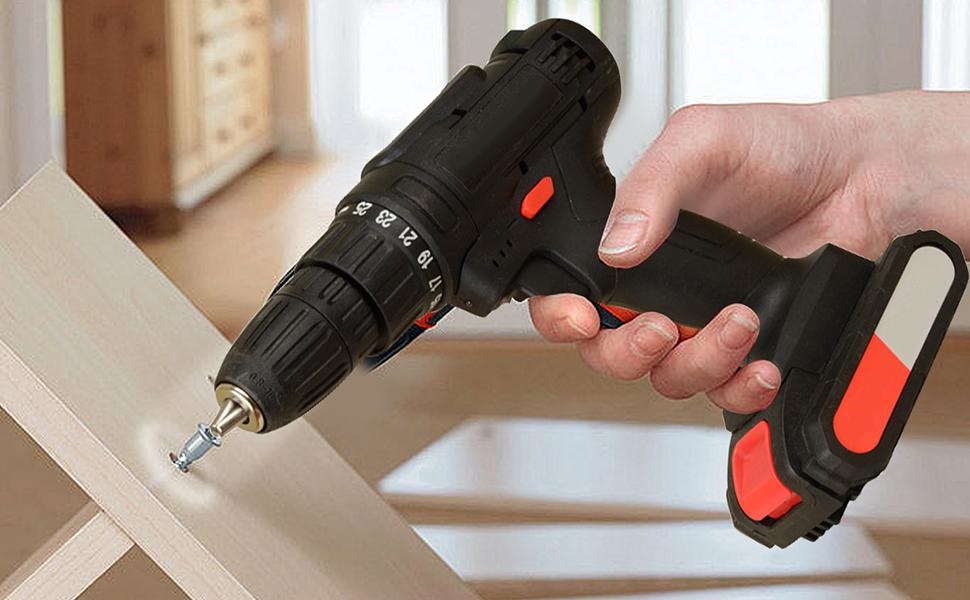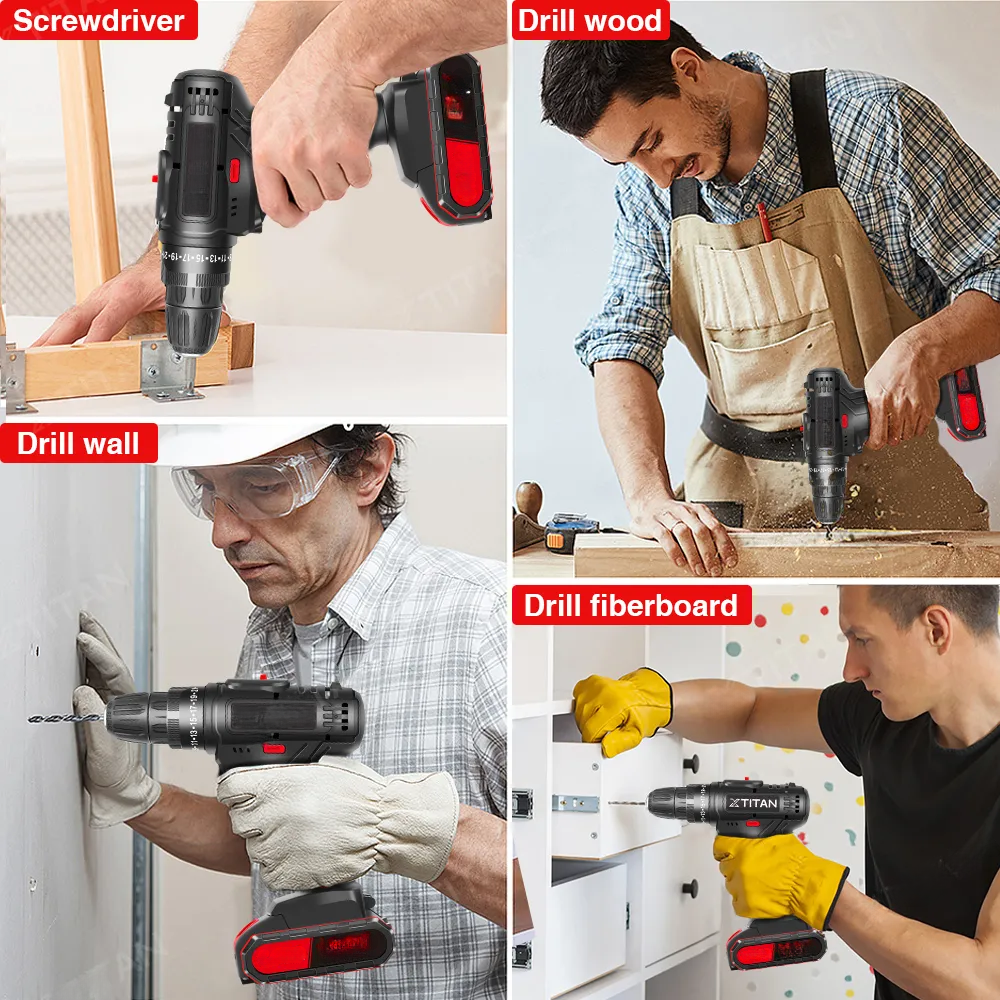Introduction
Choosing the right electric drill can be overwhelming, especially with so many options on the market. In this guide, we break down the main types of drills, their features, and ideal use cases — so you can find the perfect match.
1. Corded Drills
- Plug directly into a power outlet.
- Ideal for heavy-duty, continuous work.
- No battery charging needed.
2. Cordless Drills
- Operate on lithium-ion batteries.
- Portable and convenient.
- Perfect for household and light-duty use.

3. Hammer Drills
- Combines rotary and hammering motion.
- Designed for masonry and concrete.
- Often heavier and noisier.
4. Impact Drivers
- Deliver quick bursts of high torque.
- Best for driving long screws and bolts.
- Not ideal for precision drilling.

5. Right-Angle Drills
- Compact design for tight spaces.
- Common in plumbing and cabinetry.
6. Drill/Driver Combos
- The most versatile.
- Switch between drill and screw modes.
- Great for general use.
What to Consider When Buying
- Power source: Corded vs cordless
- Voltage: 12V for light work, 18V+ for heavy tasks
- Speed control: Variable speed is more versatile
- Chuck size: 3/8″ for most jobs; 1/2″ for heavy-duty bits
- Weight and comfort: Consider grip and balance
Conclusion
Whether you’re building a deck or hanging a picture frame, choosing the right type of electric drill is essential for both efficiency and safety.
